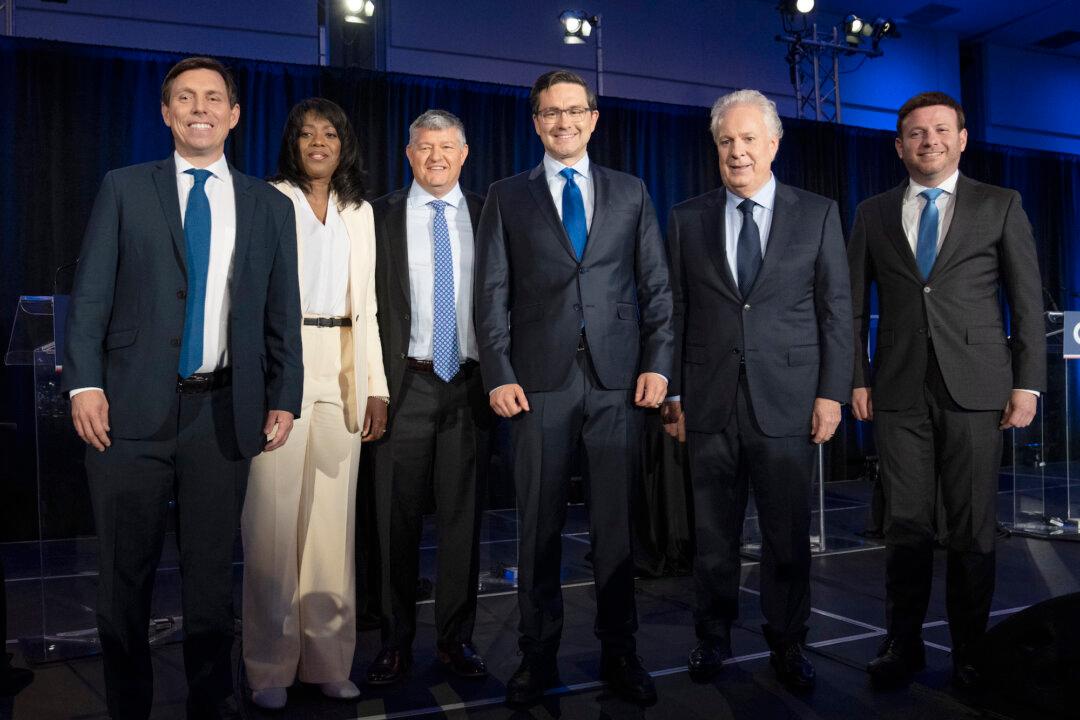Commentary
The Conservative Party of Canada’s (CPC) French leadership debate in Laval, Que., was better than the odd spectacle in Edmonton when the use of trombone sound effects and paddles as props made more news than the views of the candidates. The debate was not dominated by shouting and fireworks as was the Ottawa debate hosted by the Canada Strong and Free Network. It was well moderated by Marc-Olivier Fortin who kept a solid hand on the event. All that said, it still wasn’t terribly productive as it was dominated by a form of muted vitriol.





